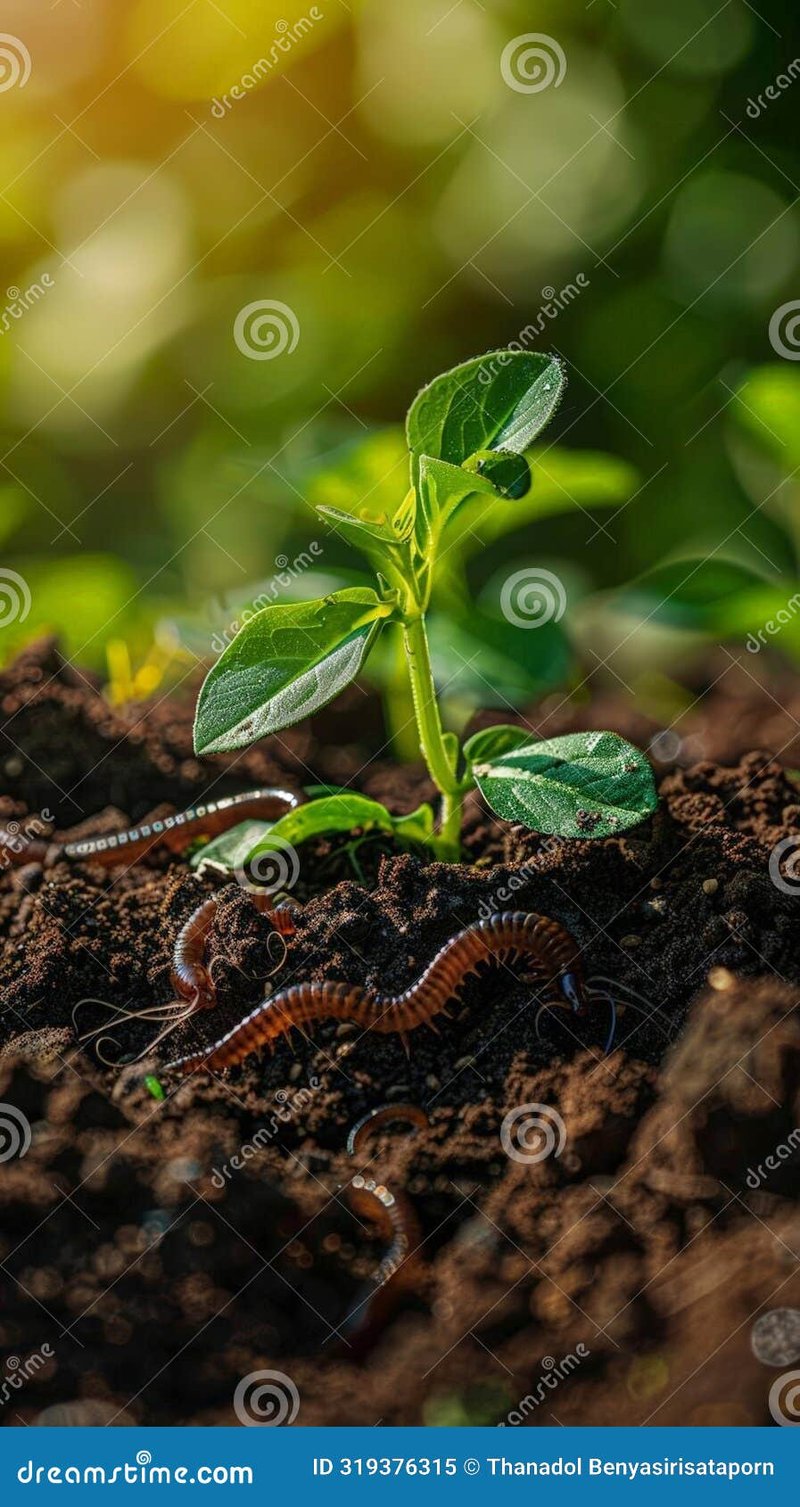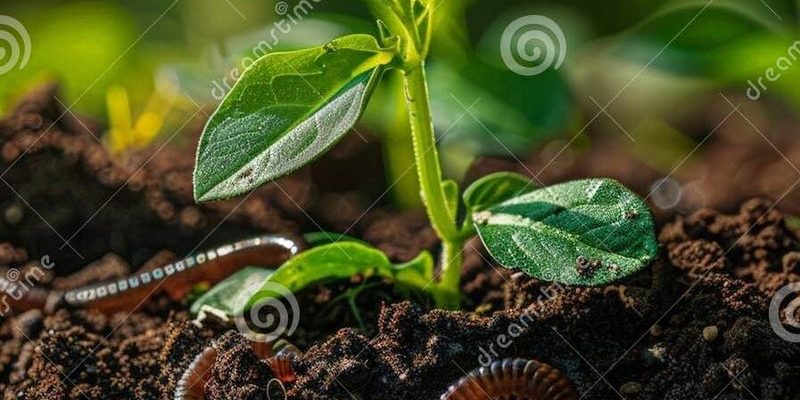
Imagine a sponge soaking up water. Just like that sponge has spaces that allow it to hold moisture, soil needs to have air pockets to support plant life. Earthworms are nature’s aerators; as they burrow through the ground, they create channels that improve airflow and drainage in the soil. So, let’s dig deeper into how earthworms contribute to this vital process and why it matters to our gardens, farms, and the environment.
What Are Earthworms and What Do They Do?
Earthworms, often called the “farmers’ friend,” are segmented worms that belong to the family Lumbricidae. They thrive in moist, nutrient-rich environments, making the soil their playground. You might be wondering what exactly they do beyond just wriggling around.
Earthworms are nature’s recyclers, breaking down organic matter like dead leaves and plants. As they munch on this material, they produce nutrient-rich castings, which are like a natural fertilizer for the soil. This process not only enriches the soil but also helps create the perfect conditions for air pockets.
Their burrowing actions lead to an intricate network of tunnels underground. It’s like creating a highway system for air and water to flow through the soil. Honestly, these little guys are MVPs when it comes to maintaining healthy soil.
How Do Earthworms Aerate Soil?
So, how do these earthworms actually aerate the soil? Think of them as nature’s little bulldozers. As they move through the ground, they push and pull soil particles apart. This action creates tiny spaces or pores that allow air to circulate.
When earthworms eat organic matter, they also break it down into smaller particles. This process generates more room in the soil. The burrows they leave behind not only serve as pathways for air and water but also allow plant roots to grow deeper and access more nutrients. It’s like providing a three-course meal instead of a snack!
Moreover, earthworms help the soil retain moisture better. The tunnels they create enable water to penetrate deeply, ensuring that plants have access to the hydration they need to thrive. Imagine being able to reach a refreshing drink whenever you want; that’s what earthworms do for plants!
Benefits of Soil Aeration by Earthworms
You might be curious about why soil aeration is so crucial. Well, good soil aeration has several benefits that contribute to healthy plant growth. Here’s a quick rundown of how earthworm activity enhances soil quality:
- Improved Drainage: Aerated soil can better manage excess water, reducing the risk of root rot in plants.
- Enhanced Root Growth: With more breathable soil, plants can develop robust root systems that dig deeper for nutrients.
- Increased Nutrient Availability: The rich castings left behind by earthworms provide plants with essential nutrients, promoting growth.
By aerating the soil, earthworms also help to create a balanced ecosystem where beneficial microorganisms can thrive. This balance is vital for breaking down organic matter and keeping harmful pathogens at bay. In essence, earthworms are not just improving soil structure; they’re fostering a rich environment for life below the surface.
The Connection Between Earthworms and Sustainable Gardening
If you’re into gardening or farming, understanding the role of earthworms can significantly impact your approach. Sustainable gardening practices often emphasize the importance of maintaining a healthy soil ecosystem. Here’s the thing: when you encourage earthworm populations, you’re also cultivating a garden that thrives naturally.
Using organic compost and avoiding chemical pesticides can help boost earthworm activity in your garden. Instead of relying on artificial fertilizers, consider making your own compost. As earthworms work their magic on the compost, they’ll turn it into nutrient-rich material that enriches your garden soil, leading to healthier plants.
Plus, a garden rich in earthworms can better fight off pests and diseases, creating a resilient ecosystem. You’re essentially building a mini-ecosystem that helps you grow without the need for synthetic inputs.
Challenges Faced by Earthworms in Modern Agriculture
Despite their benefits, earthworms aren’t invincible. They face numerous challenges in today’s agricultural world. Practices like monoculture farming, excessive tillage, and heavy pesticide use can harm earthworm populations. When soil is over-tilled, their habitats are destroyed, leading to a decline in their numbers.
Additionally, synthetic fertilizers can disrupt the delicate balance of soil nutrients and negatively affect the microorganisms that earthworms rely on. This can create a cycle of dependency on chemical inputs, which ultimately harms the soil health that earthworms help maintain.
To combat these issues, farmers and gardeners should focus on sustainable practices that support earthworm populations. By implementing crop rotation, reduced tillage, and organic amendments, we can create healthier environments for these vital soil organisms.
How to Encourage Earthworms in Your Soil
Want to boost your soil’s earthworm population? There are a few simple steps you can take to create a welcoming environment for these beneficial creatures. Here’s how to get started:
1. **Add Organic Matter**: Compost is a great addition to your garden. It provides food for earthworms and enhances soil structure.
2. **Reduce Tillage**: The less you disturb the soil, the better for earthworms. Try no-till gardening practices to keep their habitats intact.
3. **Avoid Chemicals**: Steering clear of pesticides and synthetic fertilizers will protect earthworm populations and promote a healthy soil ecosystem.
4. **Plant Cover Crops**: These crops add organic matter and keep soil covered, preventing erosion. They also provide food for earthworms when they die back.
By taking these steps, you’re not just supporting earthworms; you’re investing in the long-term health of your soil.
In Conclusion: The Unsung Heroes of Soil Health
Earthworms might be small, but their impact on soil aeration and overall health is profound. By burrowing through the ground, they create paths for air and water, enriching the soil and promoting robust plant life. While modern challenges threaten their existence, encouraging their presence through sustainable practices can lead to thriving gardens and farms.
So, next time you see a worm wriggling in the dirt, remember: it’s not just a worm—it’s an essential part of nature’s underground community. With a little care and respect, we can ensure these unsung heroes continue to play their vital role in our ecosystems. Happy gardening!

